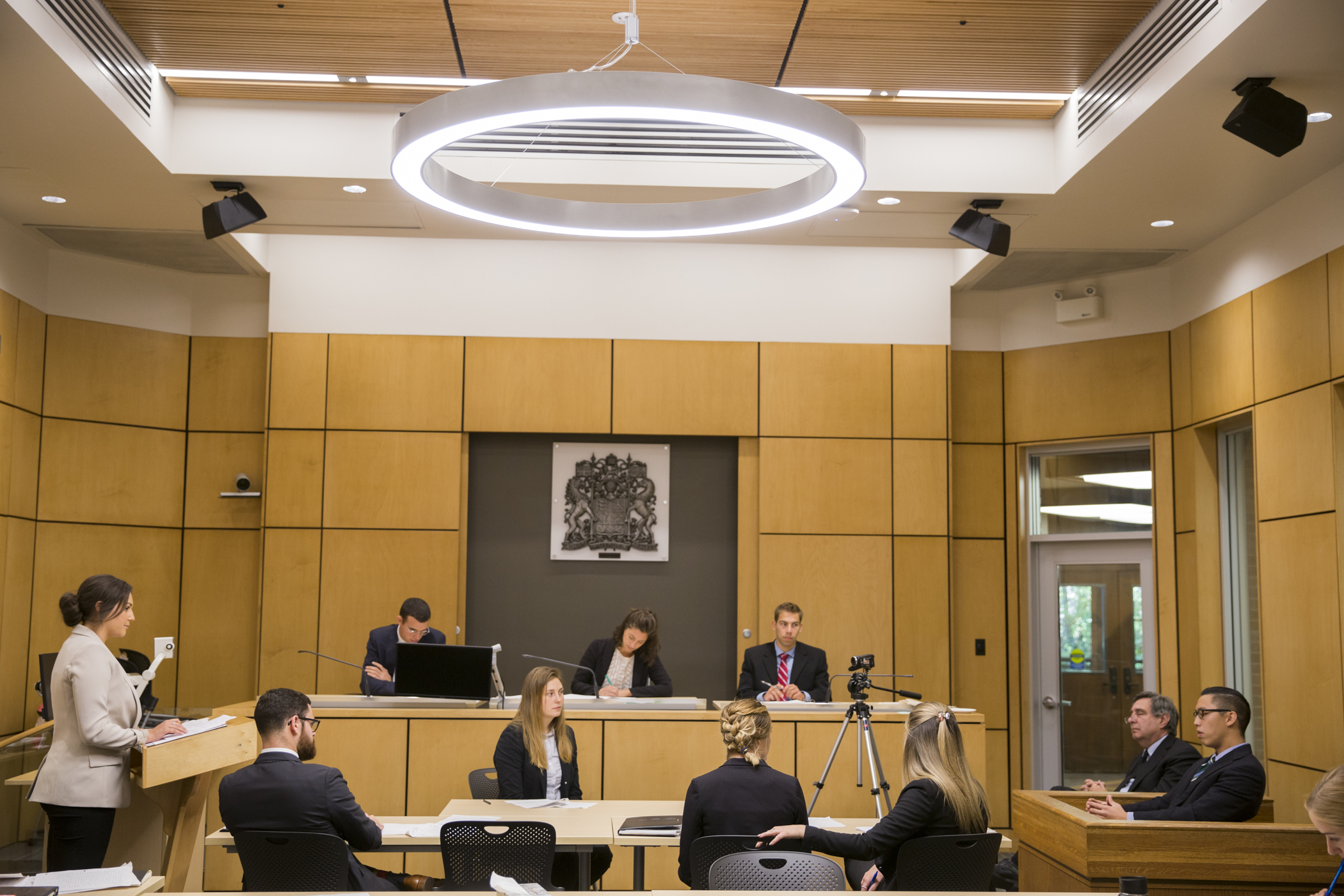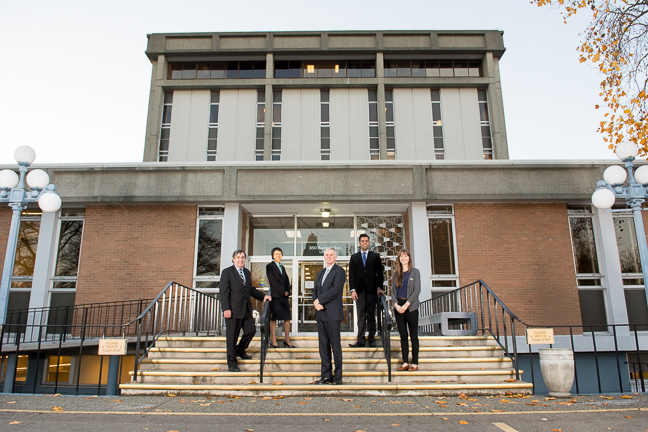For law students
The Law Centre Program is a full-term course worth 7.5 units. The Program is offered three times per year, during the Fall, Spring and Summer terms. The Program is open to 14 students each term, and to foster a cooperative spirit it is a pass-fail course. While enrolled in the Program students will develop skills, including interviewing, counselling, negotiation, drafting and oral advocacy skills.
COURSE NAME: Law 350 The Law Centre Clinical Law Program
PRE-REQUISITES: LAW 309 – Law of Evidence
UNIT VALUE: 7.5 units
HOURS PER WEEK: Students are required to attend this program “full-time”; minimum attendance being 9:00 am to 5:00 pm, Monday through Friday. Additional time will be required for trial preparation, the conduct of files, seminars, and public education programs.
TERM OFFERED: Fall, Spring, Summer
PRINCIPAL INSTRUCTOR: Chris Heslinga
See Academic Calendar for full description

Students will use advocacy skills when appearing before the Provincial Court (in the Criminal, Family and Small Claims Divisions) and administrative tribunals (such Employment and Assistance Tribunals, EI Board of Referees, CPP Tribunals, and Residential Tenancy Arbitrators).
Students can also expect to become familiar with criminal law and procedure, civil procedure as it relates to Small Claims, Family and Divorce matters, evidence, family law, corrections law, consumer law and social welfare legislation including Employment Insurance, CPP, Employment and Assistance (welfare), landlord and tenant and human rights law.
The term begins with a four-week intensive Orientation Period. The Orientation is conducted in the Moot Courtroom of the UVic Faculty of Law. Some students have described the Orientation Period as “boot camp.” But former students will tell you they never learned so much in so little time. During the Orientation Period class will meet daily from 9:00 a.m. to at least 5:00 p.m. At this time students will be introduced students to the skills and law they will need to effectively represent Law Centre clients. Classes will include lectures, demonstrations, role plays, and critiques of role plays. Students will also meet representatives from numerous government and private agencies that provide help to Law Centre clients including: the Crown, the police, the probation office, the Native Courtworkers, the Ombudsman’s Office, the Family Justice Counsellors, Transition House, the Family Violence Project, and the Separation and Divorce Resource Centre. Here is a Sample orientation schedule. Students should expect to set aside a portion of each evening to devote to the prescribed readings and preparation for the next days class.
After the orientation period the class moves to the Law Centre. The Law Centre is located in the Victoria Courthouse at 850 Burdett Avenue.
The first two weeks at the Law Centre are heavily structured. The Clinical Staff will meet with each student to thoroughly discuss each file each student has inherited. Students can expect to start with approximately 20-30 files. During the first two weeks students will begin preparing for court and administrative tribunal hearings. They will participate in many hours of training in order to be able to assist on “Rota,” i.e., initial interviewing of prospective clients . Students will participate in seminars with the police, crown counsel, duty counsel, trial coordinators, diversion administrators and other players in the criminal justice system.
During the remainder of the term students will work on client files, represent clients in court and before administrative tribunals, and assist on Rota. Students will attend William Head Institution (a minimum-security prison) to assist individuals with their legal problems. Students will also attend extended care facilities to deal with legal problems of persons living in those facilities.
During the term students will be closely supervised in their work by Director of The Law Centre, Chris Heslinga, and other lawyers. All files being conducted by students will be reviewed during three formal file reviews. In addition, all trials and other significant court appearances will be attended and supervised by one of the Clinical Staff. The Clinical staff maintain a complete “open door” policy and students can get advice and assistance at any time with regarding files they are conducting.
During the term students will also participate in a series of seminars dealing the file management, stress management, time management, and various administrative law issues.
Every Friday morning students attend a planning and case commentary meeting. During this meeting we ensure that all cases coming up in the next several weeks have co-counsel appointed and a Clinical supervisor assigned to attend court with the student responsible for conducting the case. In addition, students discuss the legal, ethical, policy and procedural issues which arose in the cases they dealt with during the week.
At the end of the term students are required to submit a research paper or develop a project that will improve the Law Centre.














